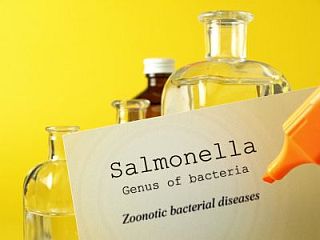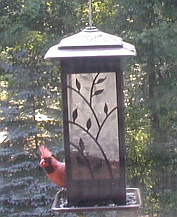Salmonella

Salmonella story
Avocado Mousse?
I was watching a popular talk show recently and the guest was demonstrating how to prepare a healthier version of chocolate mousse. His "special ingredient" was avocado, which replaced the saturated fat that normally forms the basis of this rich dessert. It seemed like a good idea to me, since avocados not only supply MUFA’s (Mono Unsaturated Fats), but also are loaded with potassium, Vitamin A, fiber and other nutrients.
However, my concern was that this recipe, like most mousse recipes, included raw egg whites. I actually cringed a bit as the guest chef spooned a generous serving of his creation into the host’s mouth. “Mmmmm! That’s really good!” Didn't anyone ever warn him about the danger of eating raw eggs?
Serious Health Problem
Unless you live in a cave, you have probably heard about a bacterium called salmonella. If ingested, this tiny organism can cause severe gastrointestinal sickness and even death. Unfortunately, raw eggs are one of the culprits in cases of food poisoning, to the point that the FDA has described “egg-associated illness caused by salmonella” as a “serious health problem.”
Only heat will destroy
Despite the popular myth, and in case you were wondering, beating egg whites has no affect on the bacteria, nor does chilling them. The only way to kill this bacteria is to heat it to 160°F. That’s the reason your mom pushed your hand away when you went for the raw chocolate chip cookie dough!

Disagreement
There is some disagreement about the issue of eating raw eggs, since some alternative medicine proponents advocate eating them as part of a healthy lifestyle. In addition, many haute cuisine chefs do not want you to miss out on the delights of recipes like chocolate mousse, Caesar salad and homemade eggnog that have raw eggs as a component.
These groups contend that the incidence of salmonella poisoning from eggs is waning, thanks to stricter government regulations. They believe that as long as we know the source of the eggs, we are at little risk for contracting bacteria from them.
Although there may be some truth in this approach, I would err on the side of caution, particularly with those in poor health, children and the elderly. In other words, the weakest among us are at the greatest risk! All the regulation in the world cannot completely eliminate this problem, and there is no way to be absolutely sure that any egg is free of bacteria, even when eggs come from known sources.
Here are some ways you can escape salmonella-related illness.
-Thoroughly wash your hands with warm water and soap after handling raw eggs.
-Limit cross-contamination by keeping raw eggs and utensils used with raw eggs from coming into contact with other foods
-Cook eggs to a temperature of 160°F.
-Avoid eating raw cookie dough or licking the bowl when making recipes that include eggs.
-Keep eggs cold and watch the use-by date on the carton.
-Discard eggs that are cracked or dirty.
There is a safer technique that you can use in recipes that require whipped egg whites. Find out how at www.ochef.com.
Keep in mind that eggs are healthy food when handled properly.
The message here is not about eliminating eggs from your diet. Eggs are a great source of high quality protein as well as vitamins and minerals, particularly the cage-free, organic variety. Just take safety measures when you handle them, and seriously consider the risks before consuming them raw.
Is it worth the risk?
As far as I know, the talk show host had no ill effects from that chocolate mousse. I emailed the show with my concern about salmonella, and haven’t heard back, so I assume it is not a problem they are concerned about. I do hope though, that the next time they present a recipe that includes uncooked eggs, that they will at least mention the potential problem and let viewers decide for themselves if the risk is worth it—or should I say if the dessert is worth the risk!


